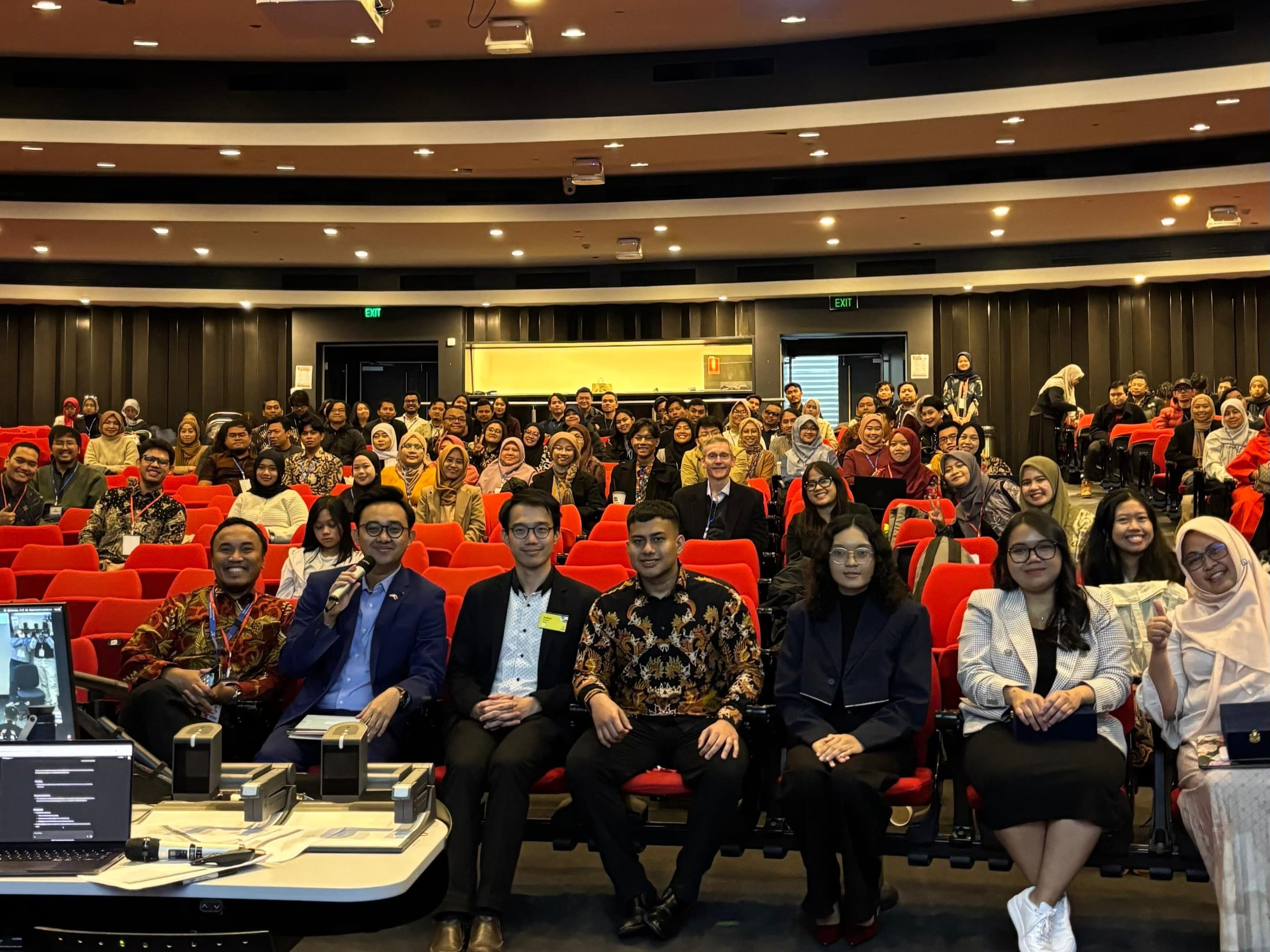KIPI 10th Officially Begins, Calling on Students to Strengthen Indonesia–Australia Collaboration!

KIPI 10th
Written by Directorate of Media and Communication (7/12/2025)
Melbourne (12/07/2025) – The 10th Konferensi Internasional Pelajar Indonesia (KIPI) officially commenced on Saturday (12/07/2025) at Sidney Myer, University of Melbourne, Australia. With the theme “Advancing Indonesia–Australia Partnerships: Driving Collaboration, Innovation, and Advocacy for Sustainable Growth”, the conference organized by the Indonesian Students Association in Australia (PPIA) gathered over 210 participants, including 30 who joined virtually.
In addition to its large attendance, KIPI 10th featured more than 20 speakers and 50 presenters who shared their insights and ideas to support the ongoing collaboration between Indonesia and Australia.
Satutya Wicaksono, Chair of KIPI 10th, stated that the conference serves as a meaningful platform for students to contribute to the Indonesia–Australia relationship.
“KIPI is a flagship initiative of PPIA. It stands as a platform for meaningful exchange, bridging ideas among students to build a bridge between two countries, Indonesia and Australia,” Satutya said on Saturday (12/07/2025).
In his opening remarks, Wildan Ali, President of PPIA, emphasized that the theme of KIPI 10th was chosen because it reflects the identity of Indonesian students.
“This theme encapsulates our identity. We, the Indonesian students in Australia, are living bridges between two great nations. We had different approaches, but we were united by a single goal. My experience taught me that collaboration is not just about combining skills. It is about creating a new, shared understanding. That is the spirit of the partnership we are here to build,” Wildan explained.
He further stressed that collaboration must go beyond celebration—it must also involve advocacy.
“It demands courage. The courage to have difficult conversations. The courage to advocate for those who are facing challenges,” he said.
Toward the end of his speech, Wildan expressed concern over the academic challenges faced by Papuan students in Australia, as well as the issue of three-year bachelor’s degrees without honours being regarded as equivalent to a diploma in Indonesia. He called on participants to remain committed to transforming collaboration into action.
“Let’s not leave this conference with just new contacts and good ideas. Let’s leave with a commitment. A commitment to start one new cross-cultural project, to mentor one junior student, or to join our advocacy task force to turn the conversations of today into the collaborations of tomorrow,” he concluded.
Joining virtually, Michael Wesley, Deputy Vice Chancellor (Global, Culture and Engagement) at the University of Melbourne, also expressed his enthusiasm for the event. He affirmed that Indonesia is a key partner, and that Indonesian students are a vital part of the university’s academic community. He hoped the conference would serve as an inspiring and productive platform.
Also speaking at the opening was Siswo Pramono, Ambassador of the Republic of Indonesia to Australia and the Republic of Vanuatu, who emphasized that democracy is a key pillar underpinning Indonesia’s collaborative efforts.
“Democracy that delivers, this is important,” Siswo noted.
He also underscored the importance of economic diplomacy in strengthening sustainable partnerships, particularly for Indonesians and Indonesian students in Australia.
“We need to employ economic diplomacy to build synergies between Indonesia and Australia. Importantly, economic diplomacy, which translates into practical cooperation,” he explained.
In his closing statement, Siswo urged both nations to show strong political will to establish long-term, impactful collaboration.
“Indonesia and Australia should make the bold moves for the strong political will for beneficial cooperation,” he concluded.
KIPI 10th highlights six key strategic issues: Strong Institutions, Security, Laws & International Relations; Climate Resilience, Sustainability, Environment & Energy; Economic Transformation, Business & Policy; Health, (Bio)Medicine & Wellbeing; Language, Education, Art, Design & Culture; and Emerging Tech, Engineering & Digital Innovation. The first three plenary sessions were held on Saturday (12/07/2025), followed by the remaining three sessions on Sunday (13/07/2025).